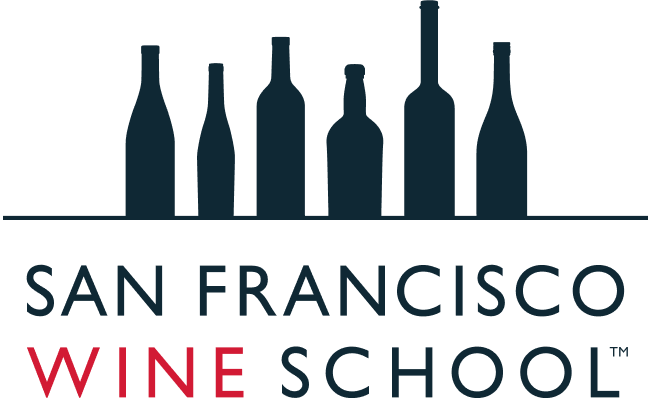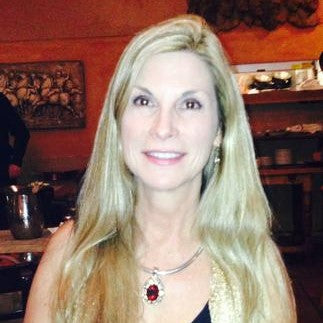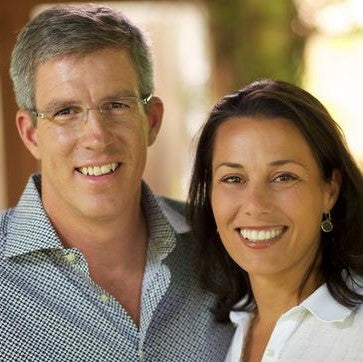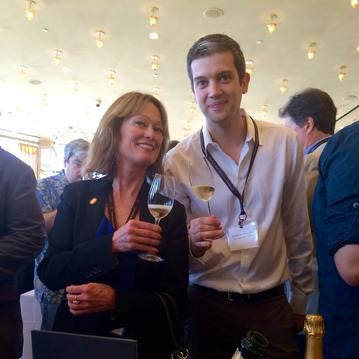Dr. Elizabeth “Liz” Thach, MW is a Professor of Management and Wine Business at Sonoma State University in Rohnert Park, California, areas of expertise including Wine Business Strategy, Human Resource Management, and Leadership Development. In addition she currently conducts research and does consulting with multiple wineries and other local businesses.
Her academic support has included a Fulbright Specialist Scholarship teaching wine business in Argentina, the Korbel Professorship for research, the Andre Crispin Commanderie de Bordeaux Scholarship to travel to France, and the Reh Kendermann Bursary involving a trip to German wine regions. She’s also received two teaching awards and the Best Wine Marketing Book in the World from Gourmand World. A Rising Star Award from the National Women for Winesense organization, she received Resolution No. 422 from the California Legislature for being the first woman in California to become a Master of Wine.
Married with one daughter, she lives on Sonoma Mountain where she tends a hobby vineyard from which she makes wine. And friendly and engaging to boot when we met there on a sunny September afternoon. Here she is:
What led you to choose wine over other intellectual pursuits?
It was always a passion. As a fifth generation Californian I did a wine tour on my 21st birthday in Napa Valley, and I was bit by the wine bug then. Later I took wine classes, and started visiting the major European wine regions with my husband. Eventually I hit a point where I wanted to make a career change, and saw an ad for a professor position at Sonoma State University that required a Ph.D. and experience in human resource management. A desired extra was a background in wine. By then I’d been studying wine 15 years on my own while working for Fortune 100 companies in Texas and Colorado, so after teaching three years I started writing wine business books. After the first one was published, I was encouraged to apply for the MW program. After five challenging and fun years studying, in 2011 I became an MW.
Wine production spread to include all of the US’s 50 states a few years ago, and excluding CA now account for 9% of domestic wine sales. What progress, or lack thereof, have you witnessed with the attendant level of wine related tourism in these states? What can, or should, be done to develop this?
It is true that California produces much more than any other state, and that 80% of wine is sold off premise in grocery stores, discount stores, etc. However, as you know, to sell wine this way you generally need a distributor, and many wineries in the other 50 states are so small this is difficult to achieve. So they rely on wine tourism and direct to consumer sales. What is impressive is how well many of these small wineries are doing. A lot of states have well-organized wine tourism associations with wine routes, festivals, online information, and other methods to lure visitors to their cellar doors. Many sell 80-100% direct to consumer and are doing well. It’s their lifeline; I think they will continue to operate in this fashion. The challenge with wine tourism is to keep it fresh, to continually innovate in order to bring tourists back several times a year.
How might a relatively unexplored wine region in France, arguably the country most identified with wine, position itself so as to better increase its attendant tourism? How might that differ from a region in China such as Ningxia, a relative newcomer to both wine production and economically aspirational wine tourism, in developing that sector?
I always believe in beginning with the consumer in mind, so doing some market research on the needs and desires of consumers coming to France would be advised. Then try to match the unique attributes of the area to the needs of the tourists, and create a ‘value proposition’ marketing campaign that appeals to them. In Provence it might include linkages to the ocean, lavender, cooking, movie stars, etc. This also calls for partnerships with other tourism stakeholders such as tour operators, hotels, restaurants, government agencies, health organizations, etc. Ideally they can create an association where they all work together to promote their region. Fortunately for France, their government provides money for the regions to promote wine.
Napa Valley and Sonoma County are two good examples of US wine tourism destinations that have worked hard and succeeded in bringing people back each year by investing in vintner associations and paying for an executive director focusing on wine tourism and partnerships with local businesses, government, environmental agencies and neighbors. Successful wine tourism calls for a lot of collaboration.
Ningxia China, which I’ve visited twice, has developed an impressive wine tourism strategy. They have 100 wineries now, with plans to grow in the future. Currently they are focusing on wine tourism for Chinese citizens and hope to open their region up to international wine tourism in 2017. They have a solid strategy, and now need to work on implementing it with a good marketing and public relations infrastructure.
You’ve written of organically grown wine’s place in the purchasing of wine in the US. What are the values afforded this category both influencing and hindering its growth?
There is a subset of consumers who seek out ‘eco’ labeled wine (sustainable, organic, biodynamic), generally in specialty stores such as Whole Foods Market. They are the same consumers who only want to eat organic food as well. Many of the other consumers assume that wine is already organic, and if they are told it is not, then they become concerned and confused. Also, about 10 years ago when organic wine was first introduced to the US market; many people had bad experiences because it was oxidized or not very tasty. For these reasons, many wineries that use sustainable practices do not advertise this on the label.
Which avenue(s) of marketing itself has the wine business neglected?
I think there is a greater opportunity in online wine sales. It has been growing at around 17% per year for the past five years, but from a very low base. Statistics indicate that in the US it is less than 2% of total wine sales. However, in other countries, it is more advanced; for example, the UK is at 15%, and Australia is about 5%.
A primary issue in the US is the complicated shipping regulations, but things are improving there as well. Interestingly, wine is selling well online in the major cities of China, such as Hong Kong and Shanghai where it only costs $1 to $2 to have it delivered. I’ve been told by several experts that many Chinese Millennials buy inexpensive wine online and have it delivered the same day to their apartment. The opposite is true in the US. Many Millennials prefer to go to the grocery store to buy wine so they don’t have to wait for delivery that can be delayed for up to a week and cost $10-15. Currently the online wine buyer in the US is an older, married male who buys more expensive wine to save and drink at a later date.
What suggestions might be employed to increase the per capita level of wine consumption in the US?
In the US about 35% of the population does not drink alcohol due to health or religious reasons, therefore, we need to focus on the remaining segments that drink beer and spirits, but not wine. As a professor, I also believe in promoting responsible consumption, so I think wine marketing shouldn’t encourage excess drinking. However fun, innovative and tasteful marketing is necessary. Craft beer and spirits are now growing faster than wine, and much of this has to do with their creative marketing. Wine needs to pay attention. There are some exceptions but, in general, the wine industry needs to be more progressive.
To what do you attribute the US’s seeming obsession with Italian wines?
That’s easy—most people in the US people love Italian food, and Italian wine goes so naturally with it. Once you’ve tried a Chianti with high acid that matches perfectly with an Italian dish, you’re likely to buy it again at another restaurant or at a shop. Also, in general, Italian wine isn’t overly expensive and has a sense of style and design in its labels – rather like beautiful Italian clothes or architecture. Prosecco is a great example. It’s fun, easy drinking, comes in attractive bottles, has bubbles, is a little sweet and is not ‘full of itself’.
Which writers have inspired you in your discovery of wines?
Hugh Johnson is one of the most beautiful wine writers, his prose is like poetry at times. I like Jancis’s writing. She is so informative and well researched. James Laube is another one of my favorites. I always enjoy his columns. He’s down to earth, practical and has useful tips.
If Sonoma dropped off the map, and you spoke any language, which wine region would you choose to base yourself in?
That’s also easy. I’m a Francophile. France is near and dear to my heart. Some day I hope to live in the south of France (Provence, the southern Rhône, or Languedoc) for two months every year, and then drive around to the other wine regions for visits. I’ve already been back and forth to France over ten times and have visited most of the wine regions repeatedly, but I never grow tired of France.
What tenets guide you in your work?
Because I’m a professor I always have to think of responsible consumption, and remember to teach that along with wine marketing and strategy. Another ethos is that every wine has a purpose and I try to look for beauty in each wine, just as I try to do with people. Though I’m a wine judge and am trained to discover faults in any wine, I also like to discover its purpose. I love wine and part of my reason to be in this world is to share that love with others who want to learn.
Professor Liz Thach has a new book entitled Call of the Vine – Exploring Ten Famous Vineyards of Napa and Sonoma. Published by Miranda Press, it is available online at Amazon.com and bookstores for $19.99.
Check out our full schedule of programs, workshops and public events. Private, customized experiences and corporate training is also available.



